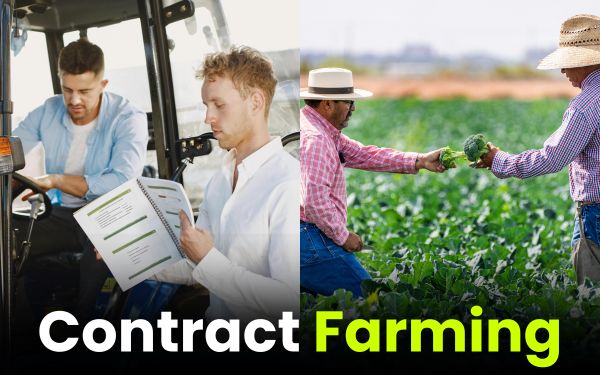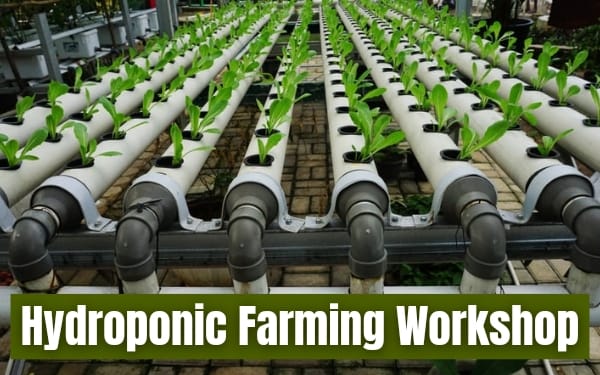Contract farming is a contract between the farmer and the client or big firms, etc. These big firms demand a certain crop, quantity of crop, and quality, which is fulfilled by the farmers. In return, companies agree to buy the product. Companies get a source of raw material; farmers get a buyer without the stress of finding a market to sell the produce.
The farmer (producer) and company (the buyer) sign a bond or agreement which states all the important terms and conditions. In this type of farming, small farmers do participate. In this article, we will understand all the opportunities and risks for a small-scale farmer in contract farming.
Opportunities for Small Farmers
One of the key factors for every successful business is calculative decision-making, expertise in the sector. In order to get expertise, you need to understand the opportunities we can have as a farmer in contract farming.
Risk-Free Pricing for Produce
Before manufacturing, you need to think of the demand for the product as well as find the market for the goods. But in contract farming, you will already have a predetermined quality, quantity, price as well as buyer of the good before you start planting. This helps the farmer eliminate most of the stress.
The price, quality, and quantity are decided as per the need of the firm or buyer.
Hence, if as a farmer you have cultivated the right type of produce—that is, the product meets the quality standards which were predetermined—then you will gain a lot of profit and the risk of uncertain market prices will be avoided.
Training and Support
Companies do tend to give different kinds of support to the farmers, such as they provide farmers with training and inputs for efficient farming. They are given detailed training on using modern methodologies and farming techniques, pest control, etc.
Lack of Financial Risk
In contract farming, some companies also offer advance payments, as this assures the farmer that they are in the right place. Also, financial help for all the pre-harvest expenses. Some companies may provide credit support to the farmer. Due to this financial help, the farm debts are reduced as there’s no need for them to take loans from banks or moneylenders.
Quality Produce
Companies usually have certain metrics for the quality of crops. The farmers need to meet that quality, which will be set while signing the agreement or contract. This helps the farmer to produce premium quality produce. This also has high value in the local market if left out, thus opening new sources of income besides contract farming.
Risks for Small Farmers
Now we will be looking into the other side of the coin—these are the risks of contract farming which a small farmer may face. These risks can be dealt with or avoided by the right knowledge and calculative steps.
Legal Problems
Usually, the small farmers are illiterate or less educated, and while signing a contract, they sign it with just understanding the basic stuff. It’s difficult for them to go in depth and understand each and every point, as contracts are complex with many hidden agreements which usually go unnoticed by the farmer.
Single Buyer Mindset
Once they get the hang of contract farming, there’s a high tendency that the farmer will depend only on the company to purchase. He/she won’t have another source of income except the buyer. Sometimes companies may back off or also delay purchase; this will affect the livelihood of the small farmer.
So, farmers need to have different sources of income and also need to have a backup plan or any other market where they can sell their produce.
Farmer Exploitation
Companies are more powerful or influential due to which they are dominant, and the contract usually leans towards them, due to which they get unfair advantages. This increases the risk of exploitation in the farmer’s case. Here, it is difficult for the farmers to negotiate. The companies have higher negotiating power than the small farmers, which could lead to exploitation.
There aren’t many government rules and regulations to prevent exploitation of the farmers. If the contract goes wrong and the company takes any legal action against the farmers, then it will be difficult for the farmers to come out of the problem due to lack of resources—monetary as well as knowledge.
Conclusion
First of all, we understand that contract farming has its benefits as well as risks, but in order to tackle the risks, you need to take calculative decisions and do proper research. For this, you need to connect with farmers who are doing contract farming for years. Understanding the problems they faced and how they tackled them will help you to gain experience as well as knowledge, and you can implement those steps and rules in the agreement.





